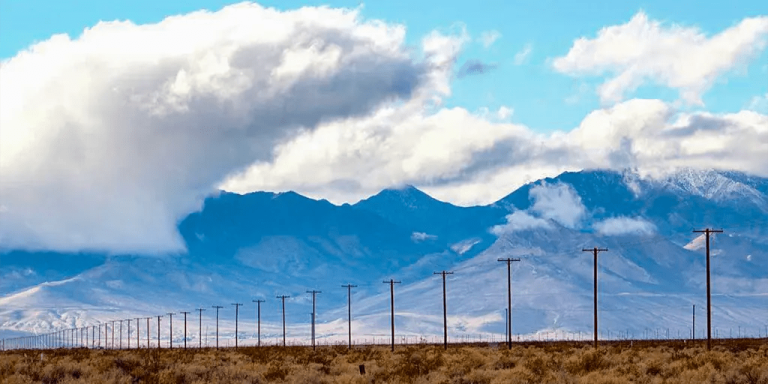Brenda Shafer
Central to President Biden’s agenda is a government-led effort to dramatically reduce fossil fuel production and consumption. One of Biden's key policies to achieve this goal is to end public financing of fossil fuel programs. The policy has attracted little public attention or scrutiny because it has had little impact on Americans. The policy primarily affects the global poor, particularly those in Africa, who lose the funds to develop electricity capabilities. While ending public financing of fossil fuels provides a feel-good moment for the Biden administration and ruling elites in other rich countries, it hurts the world's poorest people, has no impact on climate change, and sets the stage for China to increase its presence in Africa Geopolitical influence in and elsewhere creates opportunities. Removing these restrictions on fossil fuel public finances should be top of the list of the incoming Trump administration.
Developing countries have difficulty attracting commercial investment in the domestic energy sector, particularly in electricity supply. Rich countries that pay high electricity prices can rely on private markets to develop electricity capacity, while developing countries rely on loans and grants from public financial institutions such as the World Bank and regional development banks, as well as foreign aid, to develop electricity for their people.
In 2021, the United States joined the G7 in ending financing and loans for fossil fuel-based energy projects, leaving developing countries with few financing options for power development, which is key to economic growth and poverty reduction. As part of Washington's climate policy, the U.S. Treasury Department announced guidelines for multilateral development banks in August 2021, stating that “the United States will promote an end to international financing of carbon-intensive fossil fuel energy.” The United States has the highest influence among multilateral banks, and as a major donor, the World Bank often adopts U.S.-led policies. In 2019, the World Bank stopped financing fossil fuel production. In December 2021, G7 members officially ended public finance for fossil fuel projects, including natural gas. At the UK-hosted COP26 conference in Glasgow, signatories announced: “We will end new direct public support for the international fossil fuel energy industry within one year of signing this statement.
The Biden administration and G7 countries believe that by cutting funding for fossil fuels, they can force developing countries to build renewable projects instead of electricity based on fossil fuels. However, most countries rejected the proposal. Their energy professionals know better than bureaucrats in Washington or Brussels that today's renewable energy sources cannot provide the stable and affordable power to lift their public out of poverty. Additionally, wind and solar require baseload electricity from fossil fuels to provide constant power. Therefore, even renewable energy projects require fossil fuel funding.
Less access to fossil fuels does not mean less pollution and emissions. In fact, a lack of stable and affordable fossil fuel electricity could lead to increased pollution, emissions and threats to public health. Humans need energy for basic functions such as heating, cooking and purifying water. Without energy, humans would burn dung, lump coal, wood and other biomass. This creates greater pollution, carbon emissions and health threats than generating electricity from fossil fuels, especially natural gas.
The suspension of public finances in Western countries has several geopolitical implications. First, China can gain geopolitical influence through its role as a major funder of energy projects in developing countries. Second, the West's withdrawal from the financing of fossil fuel programs could lead to antagonism in developing countries against the West, which is indifferent to the pain caused by energy poverty. Third, the lack of reliable electricity in developing countries has led to increased instability in many affected regions around the world. Fourth, ending public financing of fossil fuels could slow the expansion of electricity supplies in developing countries. In 2022, global electricity supply fell for the first time in nearly a century and remained close to flat in 2023. Today, one in 10 people worldwide does not have access to regular electricity.
The new government should overturn the ban and encourage the G7 to do the same. The new administration should clarify to the World Bank its support for financing natural gas and other fossil fuel projects that would benefit the world's poor. Fortunately, Trump’s nominee for energy secretary, Chris Wright, is passionate about bringing energy to the world’s poor and has been working philanthropically to make clean cooking possible for years.
Reversing this and many other Biden-era energy policies won’t be easy. While some energy policies can be rolled back through congressional legislation and executive orders, public finance bans on fossil fuels are adopted by multilateral frameworks including international institutions such as the G7 and the World Bank. The Trump administration will encounter resistance as it attempts to change policy. It is important to clarify broadly that these policies harm the world's poor and need to be reversed. Washington should consider defunding the institutions it funds that deny electricity funding to the world’s poor.
Professor Brenda Schaeffer is a faculty member at the U.S. Naval Postgraduate School, a senior advisor for energy at the Foundation for Defense of Democracies, and a senior fellow at the Atlantic Council's Global Energy Center.
This article was originally published by RealClearEnergy and provided via RealClearWire.
Relevant
